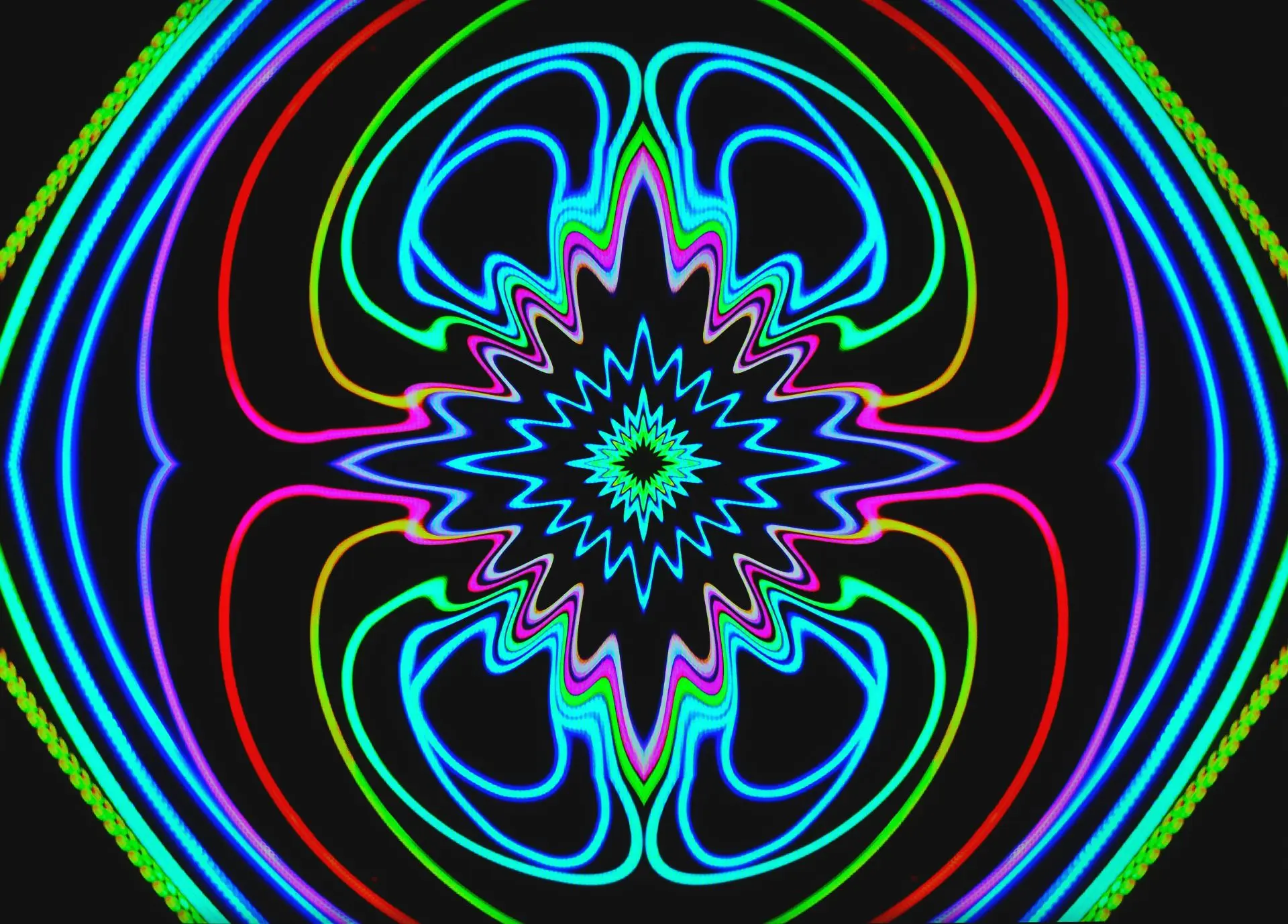Is Death the End of Consciousness? A Philosophical Query

Looking for more amazing products? Check out our online store and explore our collection here! Happy shopping!
Before diving in, please note: This post is for informational purposes only. If you’d like to know more about how we approach topics, feel free to check out our friendly Disclaimer Page.
Hey there, amazing readers! 
We’re committed to delivering quality posts, and your support (even just sticking around despite the ads) means everything to us. So, bear with us, and thanks for helping us keep the good vibes rolling. Now, on to the fun stuff!
TRANSLATE BUTTON AT THE END OF THE ARTICLE
A Quick Overview
The question of whether death marks the end of consciousness is a topic that has intrigued humanity for centuries.
From ancient philosophies to modern scientific inquiries, our understanding of consciousness and what happens after we die continues to evolve.
This article dives deep into various perspectives on consciousness, offering insights and reflections that may help us grapple with this profound mystery.
Whether you’re a philosophical thinker, a curious skeptic, or simply someone wondering about what lies beyond, this exploration is for you.
Introduction: Exploring the Mystery of Consciousness
Consciousness is one of those perplexing subjects that can leave us scratching our heads.
What is it that makes us aware of ourselves and the world around us?
Is it simply a byproduct of our brains, or is it something more?
These questions swirl in our minds as we ponder the essence of our existence.
Many of us go through life focusing on the everyday tasks that keep us busy, but when we pause, we might find ourselves questioning the nature of our being.
I remember sitting in a café one sunny afternoon, sipping coffee while watching people pass by.
It struck me that each person has their own unique consciousness, with thoughts, feelings, and dreams.
This realization made me wonder: What happens to all that awareness when life ends?
The intrigue doesn’t just lie in what consciousness is but also in what happens to it when the heart stops beating.
Does it cease to exist, or does something continue?
These contemplations push us to explore deeper and seek answers in philosophy, science, and personal experiences.
What is Consciousness? Definitions and Perspectives
Consciousness can be defined in several ways, depending on who you ask.
At its core, it’s the state of being aware of and able to think about one’s own existence, thoughts, and surroundings.
Here are a few perspectives:
Philosophical Definition: Philosophers often discuss consciousness in terms of "qualia"—the subjective experiences that shape our perception of reality.
Think about how an apple tastes; the experience is deeply personal and unique to each of us.
Psychological View: In psychology, consciousness includes not just awareness but also cognitive processes like thought, emotions, and memory.
It shapes our behaviors and decisions, guiding us through life’s maze.
Neuroscientific Approach: Neuroscientists employ an empirical lens, investigating brain activity and the neural correlates of consciousness.
They aim to identify which areas of the brain are responsible for particular conscious experiences.
Eastern Philosophical Insight: In many Eastern traditions, consciousness is viewed as something that transcends individual identity.
It is often seen as interconnected, suggesting that our consciousness might merge with a larger universal consciousness.
Explore the Path to Spirituality and Enlightenment – Start Here.

As we peel back the layers of consciousness, we start to see how intricate and multifaceted it is.
But what happens to it when we die?
This question takes us into the historical dialogues surrounding life and death.
The Historical Context: Philosophers on Life and Death
Throughout history, thinkers have pondered the connection between life, death, and consciousness.
Plato believed in the immortality of the soul, arguing that death is merely a transition.
He suggested our true essence is separate from our physical bodies, enabling a continual journey of the soul.
Aristotle offered a different perspective, viewing the soul as the "form" of the body.
For him, death signified the end of consciousness, as the soul could not exist independently of the body.
René Descartes famously posited that the mind and body are distinct entities.
He argued for a dualistic approach to understanding consciousness, suggesting that while the body dies, the mind may persist in another form.
Friedrich Nietzsche challenged conventional notions of the afterlife and proposed the idea of "eternal recurrence." This concept implies that our lives and actions are significant, as they may repeat infinitely.
These thinkers contributed to the ongoing dialogue about consciousness and its fate after death.
Their varied viewpoints highlight a rich tapestry of beliefs that reflect humanity’s quest to understand our existence.
Dualism vs. Materialism: Two Views on Consciousness
When discussing consciousness in relation to death, two prominent viewpoints emerge: dualism and materialism.
Dualism maintains that the mind and body are separate entities.
Advocates of this view argue that consciousness can exist independently of physical form.
They often find support in religious and spiritual beliefs, suggesting that something eternal remains after physical death.
Materialism, on the other hand, holds that everything, including consciousness, arises from physical processes.
According to this perspective, consciousness is a byproduct of brain activity.
Once the brain ceases to function, so does consciousness.
This divide creates fertile ground for debates around the nature of existence and what really happens after we die.
Both perspectives offer compelling narratives, but neither has been definitively proven.
Near-Death Experiences: Insights from the Other Side
Near-death experiences (NDEs) provide fascinating anecdotal evidence that people often cite when discussing consciousness after death.
Many individuals who have come close to death report vivid experiences that challenge our traditional understanding of consciousness.
Common Themes: Many NDEs include feelings of peace, out-of-body experiences, and encounters with deceased loved ones.
These accounts often evoke wonder and curiosity about consciousness’s nature beyond physical life.
Scientific Examination: Researchers have begun to study NDEs in a more systematic manner.
Some suggest that certain brain processes may create these vivid experiences, while others argue they hint at consciousness’s persistence beyond death.
Cultural Interpretations: Different cultures interpret NDEs in varied ways.
For example, in some Eastern traditions, these experiences are considered glimpses into the cycle of rebirth.
Western interpretations may frame them as spiritual awakenings.
While NDEs offer tantalizing insight, they also raise more questions than answers.
The subjective nature of these experiences makes them difficult to quantify or analyze.
Yet, they undeniably enrich the conversation about consciousness and what might lie beyond.
The Role of Science: What Research Says About Death
Science plays a crucial role in examining consciousness and its potential fate after death.
Here are some key points:
Brain Activity Near Death: Studies have shown that brain activity can spike in patients who are close to death, leading to the hypothesis that consciousness might not vanish immediately.
Consciousness as a Spectrum: Some researchers propose that consciousness exists on a spectrum, indicating that levels of awareness can vary.
This perspective opens the door for possibilities of consciousness existing in some form even after death.
Quantum Mechanics and Consciousness: Some scientists speculate that quantum mechanics might offer insights into consciousness.
Theories like Orch-OR (Orchestrated Objective Reduction) propose that consciousness could be tied to quantum states within the brain.
Limitations of Science: Despite advancements, science faces challenges in fully understanding consciousness.
The subjective nature of personal experience makes it difficult to study scientifically.
Through research, we continue to unearth layers of understanding about consciousness, yet mysteries remain.
Reincarnation and Afterlife: Beliefs Across Cultures
Beliefs about what happens after death are as diverse as humanity itself.
Many cultures have rich traditions regarding reincarnation and the afterlife.
Hinduism and Reincarnation: In Hindu belief, the soul goes through cycles of birth, death, and rebirth (samsara) until it achieves moksha, or liberation.
This perspective emphasizes the continuity of consciousness.
Buddhism’s Impermanence: Buddhism teaches about the impermanence of life.
The concept of anatta (non-self) suggests that there is no permanent self, raising questions about the nature of consciousness after death.
Abrahamic Traditions: In Christianity, Islam, and Judaism, beliefs about the afterlife often involve resurrection and divine judgment.
The soul is seen as eternal, continuing into an afterlife based on one’s earthly deeds.
Modern Spirituality: In contemporary spirituality, many people embrace a mix of beliefs, often focusing on personal growth and the interconnectedness of all beings.
These beliefs shape how people approach life and death.
They offer comfort, providing frameworks for understanding our existence beyond this life.
Consciousness Beyond the Brain: A Quantum Perspective
Emerging discussions about consciousness often touch on the intersection of consciousness and quantum physics.
While this territory is dense and complicated, here are some thoughts:
Quantum Consciousness: Some theorists propose that consciousness is not strictly a brain function but may involve quantum processes.
This suggests that consciousness could exist in forms beyond our conventional understanding.
Interconnectedness: Quantum theories often highlight interconnectedness, aligning with spiritual concepts of universal consciousness.
This idea suggests that our thoughts and experiences could impact a broader reality.
Scientific Scrutiny: While quantum consciousness is an intriguing theory, it remains highly speculative.
Researchers are still grappling with fundamental questions about the nature of consciousness itself.
Personal Reflection: Personally, the intersection of quantum physics and consciousness sparks my curiosity.
It raises fascinating questions about our existence and whether consciousness might transcend physical boundaries.
As we delve into this area, we find ourselves at the frontier of knowledge, where science and spirituality may converge.
The Argument for Immortality: Can Consciousness Persist?
The debate around whether consciousness can persist beyond death often leads to discussions of immortality.
Here are some points worth considering:
Philosophical Arguments: Philosophers like Plato and Descartes champion the idea that consciousness can exist outside the body.
Their arguments often stem from the belief in an eternal soul.
Technological Perspectives: In contemporary discussions, some thinkers propose that advancements in technology might allow us to upload consciousness into a digital realm, raising ethical and existential questions.
Biological Limitations: Critics argue that consciousness is inherently tied to biological processes.
Once those processes cease, so too does consciousness, creating a stark contrast to the notion of immortality.
Personal Beliefs: I often ponder whether the essence of who we are could be preserved in some way beyond this life.
The idea of an eternal existence is both comforting and perplexing.
While the desire for immortality resonates deeply, the feasibility of this concept remains a complex and delicate issue.
Ethical Implications: What Happens After We Die?
As we explore what happens after we die, it is crucial to consider the ethical implications that arise:
Impact on Behavior: Beliefs about the afterlife can influence how we live our lives.
Many people strive to be better, motivated by the idea that their actions have consequences beyond this life.
Grief and Loss: The question of what happens after death can profoundly affect how we process grief.
Understanding death in a particular context can provide comfort or cause additional pain.
Healthcare Decisions: Discussions around death can also inform medical ethics, particularly in end-of-life care.
Understanding a patient’s beliefs can guide decisions about treatment and palliative care.
Personal Insight: On a personal level, grappling with the ethics of death has shaped my understanding of life.
Engaging in conversations about mortality can lead to deeper connections with others and a more meaningful existence.
Navigating these ethical waters invites us to reflect on our beliefs and the responsibilities we bear in this life.
Personal Reflection: How Do We Approach Our Mortality?
When we contemplate death and consciousness, it’s essential to reflect on how we personally approach mortality:
Embracing the Unknown: Accepting that we may never have definitive answers about what happens after death can be liberating.
It encourages us to focus on the present and live fully.
Cultivating Connections: Building meaningful relationships becomes paramount.
Sharing experiences and emotions with others can enrich our lives and create lasting memories.
Living with Intention: The knowledge that life is finite can inspire us to pursue our passions, engage in meaningful work, and seek fulfillment in our everyday lives.
Finding Solace in Belief: Holding onto beliefs—whether spiritual, philosophical, or scientific—can provide comfort.
It allows us to create our narratives about life, death, and what may lie ahead.
As we navigate our mortality, we find ourselves in a space that promotes growth, connection, and understanding.
Conclusion: Embracing the Unknown in Life and Death
In wrapping up this exploration of consciousness and death, it’s clear that the questions we face are not easily answered.
Though perspectives vary—from philosophical musings to scientific inquiries—what remains constant is our shared curiosity about existence.
As we ponder whether death is the end of consciousness, we uncover layers of meaning that enrich our lives.
Engaging with these ideas encourages us to live more fully, appreciate our connections, and embrace the mystery that surrounds us.
Let’s approach life with a sense of wonder, cherishing each moment and the consciousness that colors our experiences.
In the end, perhaps the beauty lies not in finding answers but in the journey of discovery itself.

The Enlightenment Journey is a remarkable collection of writings authored by a distinguished group of experts in the fields of spirituality, new age, and esoteric knowledge.
This anthology features a diverse assembly of well-experienced authors who bring their profound insights and credible perspectives to the forefront.
Each contributor possesses a wealth of knowledge and wisdom, making them authorities in their respective domains.
Together, they offer readers a transformative journey into the realms of spiritual growth, self-discovery, and esoteric enlightenment.
The Enlightenment Journey is a testament to the collective expertise of these luminaries, providing readers with a rich tapestry of ideas and information to illuminate their spiritual path.
Our Diverse Expertise
While our primary focus is on spirituality and esotericism, we are equally passionate about exploring a wide range of other topics and niches 

To ensure we provide the most accurate and valuable insights, we collaborate with trusted experts in their respective domains 
Our blog originally focused on spirituality and metaphysics, but we’ve since expanded to cover a wide range of niches. Don’t worry—we continue to publish a lot of articles on spirituality! Frequently visit our blog to explore our diverse content and stay tuned for more insightful reads.
Hey there, amazing reader! 
Check out our store here and take a peek at some of our featured products below! Thanks for being awesome!












